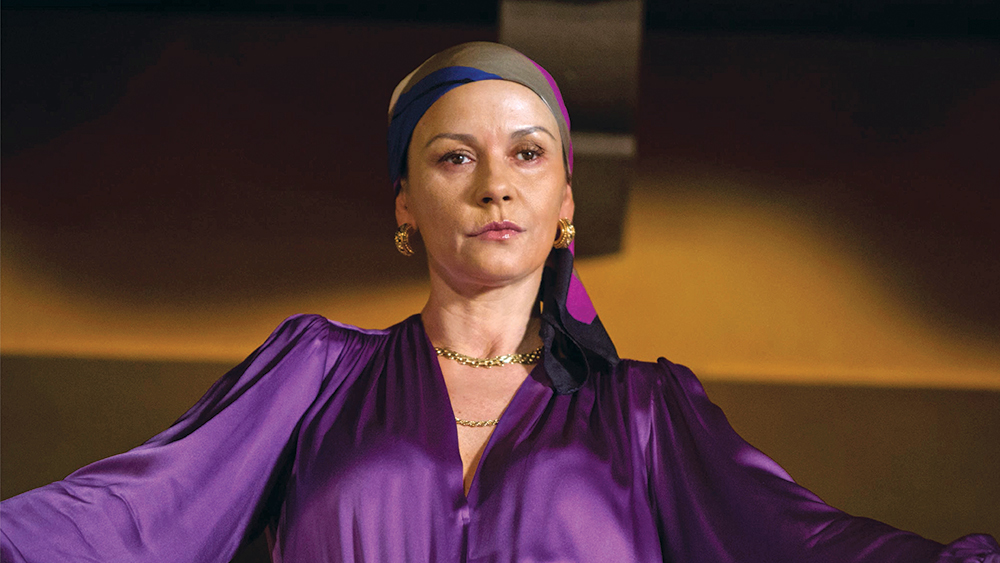Big-Name Talent Lured to TV by ‘Amount of Creativity and Diversity’ in the Medium
By Carita Rizzo
LOS ANGELES (Variety.com) – Peak TV has led to a new golden age for movies on the small screen. This year alone some of those boldfaced names included Al Pacino in “Paterno,” Michael B. Jordan in “Fahrenheit 451” and in “Cocaine Godmother.”
“I don’t think there’s ever been a better time for television. The amount of creativity, diversity, talent — it’s contagious,” says Zeta-Jones.
The Academy Award-winning actress should know. After trying to get a film about ruthless Colombian drug lord Griselda Blanco off the ground for years, she finally found a home for it on Lifetime, which, to her surprise, offered her everything she wanted as the project’s headliner.
“I think the joy as an actor is having the ability to work with great people, be passionate about something and to have people see it, which I had in Lifetime,” she says. After that, “good work is good work wherever it is.”
TV has become a more enticing alternative as theatrical market has contracted to focus on four-quadrant blockbusters featuring superheroes. Any project outside that can face a long, uphill battle to get produced, let alone make it to neighborhood theaters.
“The movie business is in such poor shape,” says Kyra Sedgwick, who had spent the better part of a decade trying to adapt the novel “Story of a Girl” for the big screen before also finding a home at Lifetime. “Unless your movie comes out right before Oscar time or it somehow manages to make enough noise for people to actually see it, it’s heartbreaking what’s happening to smaller films.”
After a general meeting with Lifetime, she brought them her passion project, and last summer Sedgwick made her directorial debut on the network.
Both women were concerned about creative limitations they might face with a TV production — concerns that turned out to be unwarranted.
“We literally had it in the contract that it was an independent feature that was licensed by Lifetime. We shot it as a film, we edited as a film, and my amazing editor figured out where the commercials went,” says Sedgwick. “When we finished, Lifetime had notes, and we were able to implement some of them, and some of them we pushed back on, and they were lovely about it.”
The stigma of working in television is long gone for film actors, but talent still gets nervous about committing to a series — however good the first season — with a multi-year contract. , who between such gigs as “Wormwood,” “Westworld” and “Unsolved” appeared in the particularly star-studded “USS Callister” episode of “Black Mirror,” says that for him, at least, shorter projects tend to be creatively more interesting.
“Most of the work that I’m really attracted to is about a story, rather than a concept that we can live out for a very long time,” he says.
TV movies and anthology series also give talent the opportunity to work with high-caliber collaborators that are only available for short periods of time. One example: Jodie Foster, who dipped her toe in the medium, without the years-long commitment, by directing an episode of “Black Mirror” entitled “Arkangel.”
“Television is still wedded to the episodic model, with these long novelistic, rambling studies,” says Foster.
An anthology series, however, offers an in for talent that wants to tell a story, not unlike what they’re used to on the big screen.
“I loved that it’s not just the exploration of characters — it’s the exploration of characters within a central story, which has a final resolution,” she says. “I really like a beginning, a middle, and an end.”

